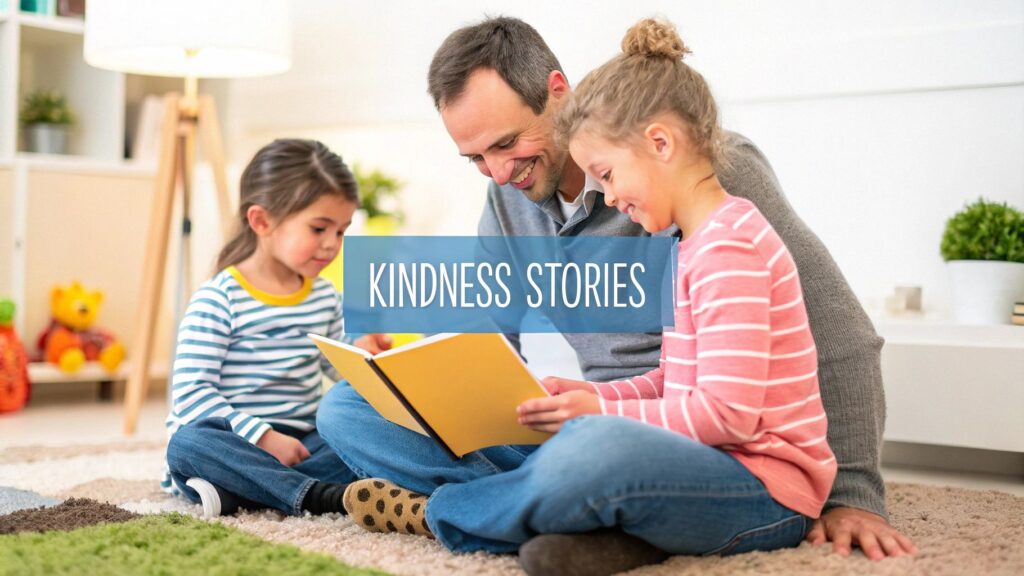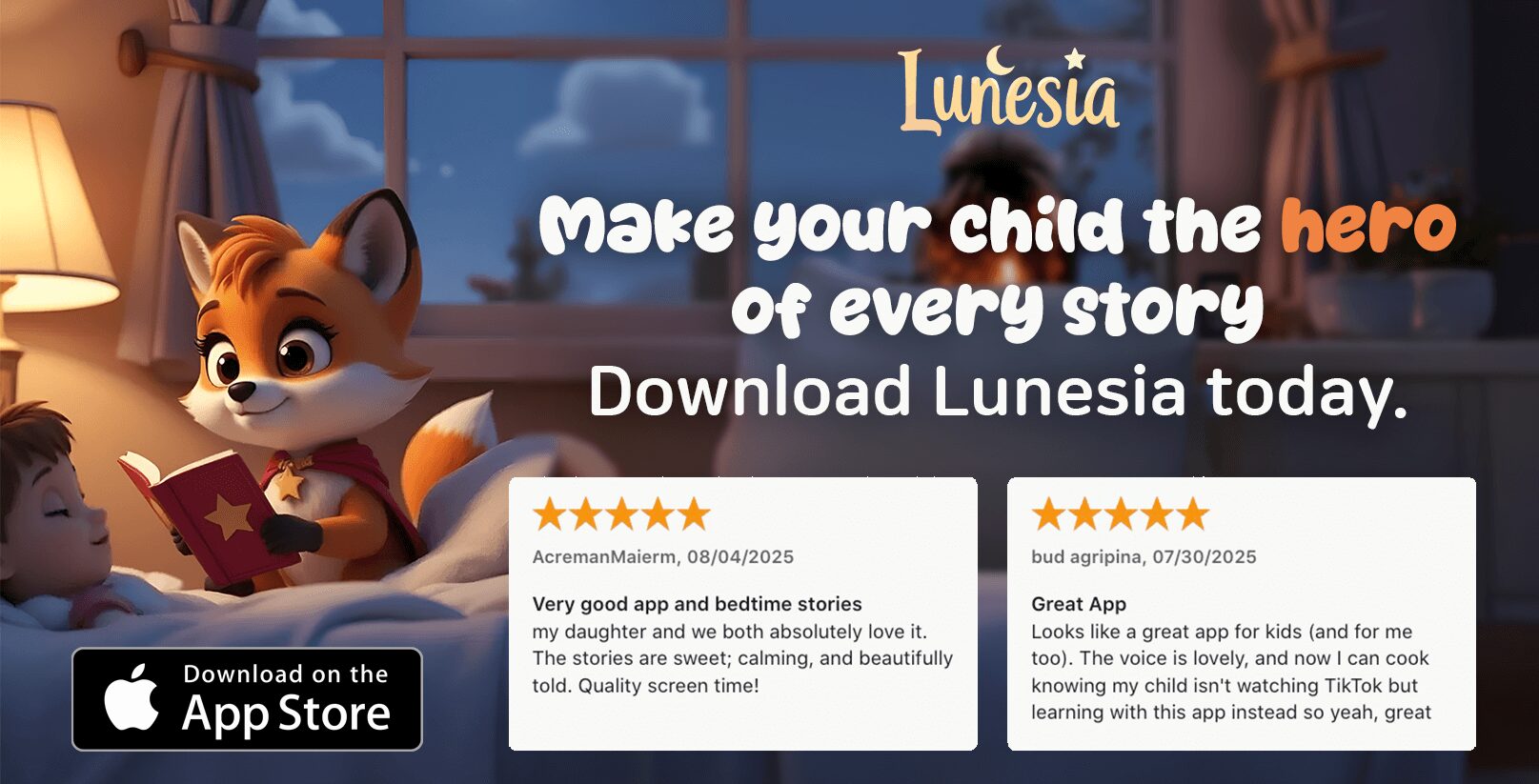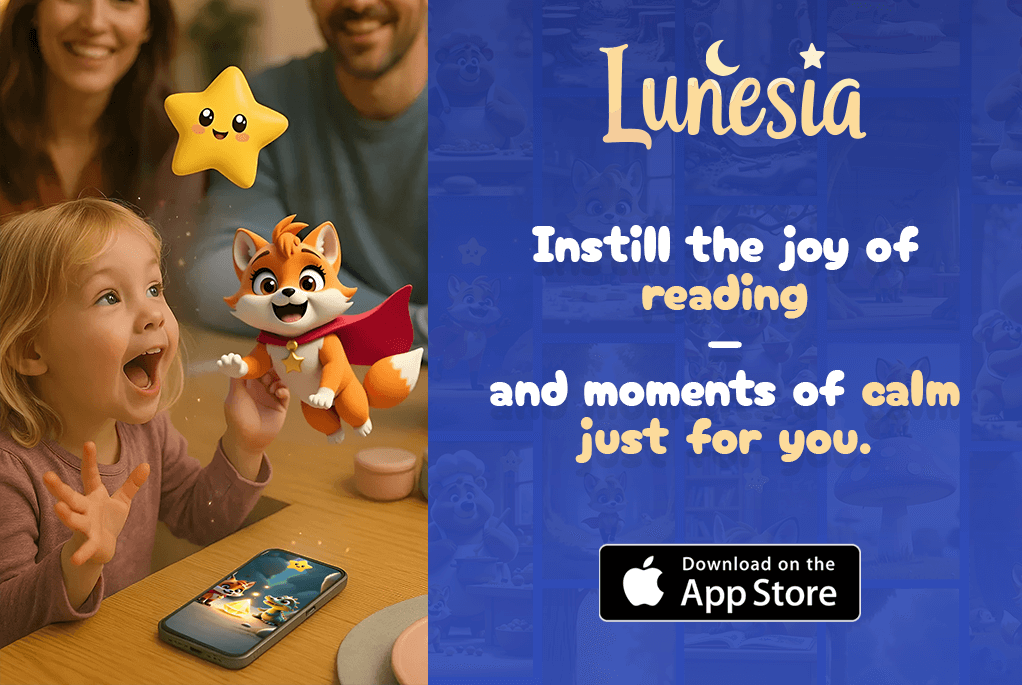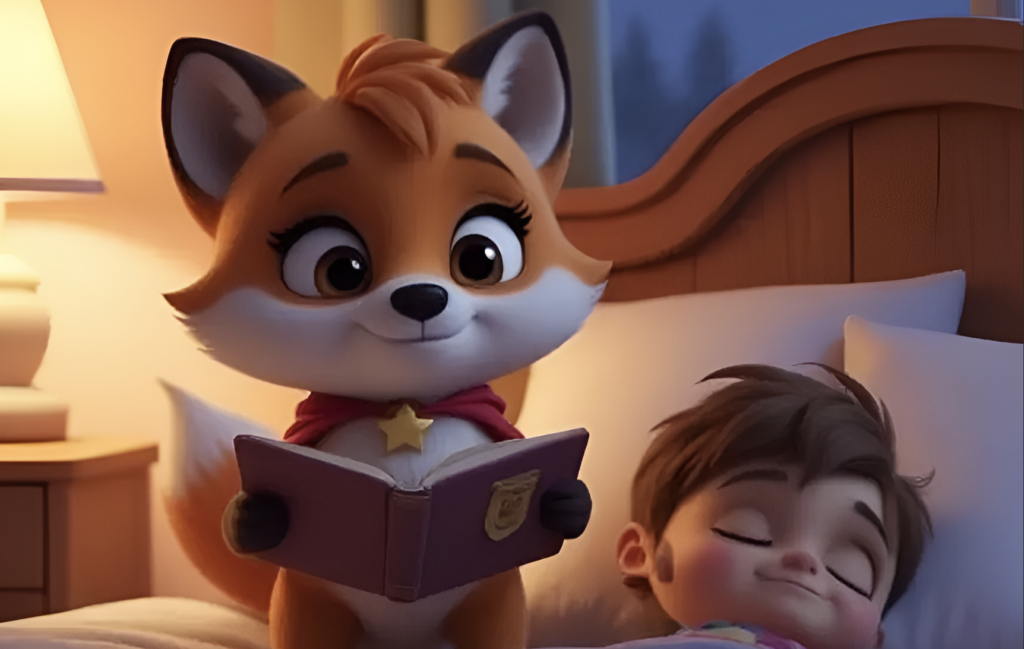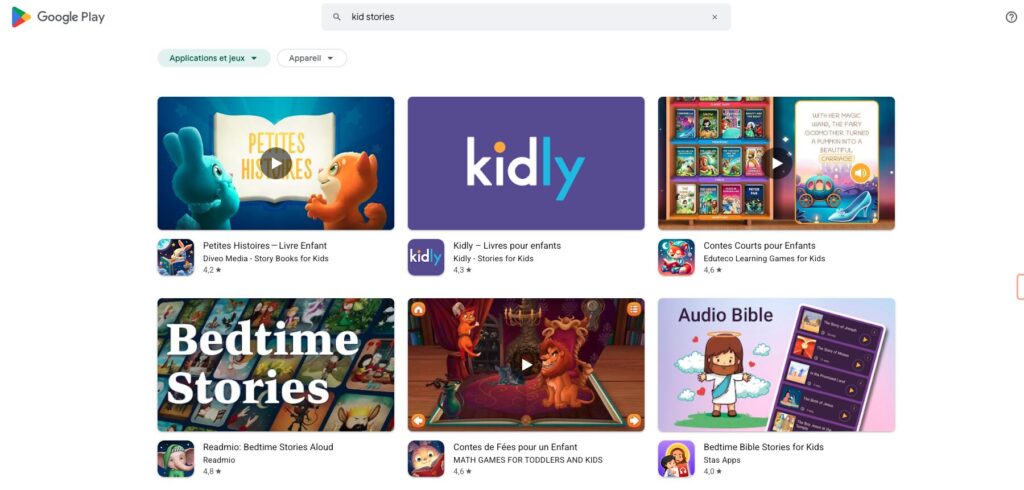Ever feel like you’re negotiating a peace treaty over a single crayon? You’re not just a parent; you're a full-time diplomat for tiny humans with huge emotions. What if you could turn those daily standoffs into powerful moments of compassion? What if the secret to raising a kind, resilient child wasn't in stricter rules, but in richer stories?
It’s not just wishful thinking. Did you know that stories act as 'flight simulators' for a child's brain? Neuroscientists have found that engaging narratives allow children to safely practice empathy and problem-solving, building crucial emotional skills without real-world risk. Beyond stories, other engaging methods can foster a positive emotional environment; for instance, exploring a variety of effective therapeutic activities for children can be incredibly beneficial.
In this article, we’ll explore incredible, real-life stories about kindness and give you concrete, can-do-it-now tips to weave these lessons into your family’s daily rhythm. We’ll also reveal how a revolutionary app, Lunesia, is turning storytime into an interactive adventure where your child doesn't just listen—they lead. They make choices that teach kindness and courage, all while you finally get a moment to yourself, guilt-free.
1. The Pizza Party for Democracy: How Sharing a Slice Strengthens Community
How do you explain something as huge as civic duty to a three-year-old? Could you do it with something they already adore, like pizza? That's the brilliantly simple idea behind Pizza to the Polls, a real-life initiative that delivers free food to people stuck in long voting lines. This isn't just about politics; it’s one of the most powerful modern stories about kindness.
Can you imagine waiting for hours, feeling tired and frustrated, just to do your civic duty? Now picture a volunteer appearing with hot pizza for everyone, no strings attached. What was an ordeal is instantly transformed into a moment of shared joy. It teaches a lesson that cuts through all the noise: true kindness expects nothing in return. It’s about seeing a need and meeting it with warmth.
The Take-Home Lesson for Kids
So what does this mean for your little one? It boils down to this: small, happy acts can solve big, grumpy problems. You don't need a superhero cape to make someone's day. This story shows that the best kindness is about noticing others, seeing their small struggles, and offering a simple comfort. It’s community care in its purest, most delicious form.
For a child, the idea of "helping the helpers" or "making a hard thing easier" is crystal clear. The pizza isn't just food; it's a symbol of support, a high-five for patience.
How to Bring This Story to Life
Ready to turn your home into a kindness hub? Here’s how to translate the "pizza principle" into actions your 2-to-7-year-old can master:
- Spot the "Long Line": Ask your child, "Who looks like they’re having a tricky time?" Is a sibling struggling to build a block tower? Let’s offer them a "power-up" (a favorite toy) to cheer them on. Is a neighbor working hard in their garden? Let’s be "water heroes" and bring them a cold drink.
- Create a "Kindness Kit": Why not make a family "Kindness Kit"? Fill a small box with stickers, homemade cards, or pre-packaged snacks to give to delivery drivers or sanitation workers. It turns giving into an exciting, repeatable mission.
- Let Them Choose the Kindness in a Story: What if your child could make these very choices in a story? That's the magic of Lunesia. In its interactive adventures, your child faces dilemmas: do they share their supplies with a tired traveler or offer a kind word to a sad creature? By making these decisions, they aren't just hearing about empathy—they're practicing it, turning screen time into a safe training ground for real-world compassion.
2. The Sandwich Generation Angel: Clara's Daily Meals
What does it really take to change a community? A giant budget? A team of experts? Or could it just be one person with a big heart and a small kitchen? The incredible true story of Clara McBride, an 89-year-old woman from Detroit, proves that consistent, small acts of love can create a tidal wave of change. This is one of those deeply moving stories about kindness that shows no one is too old or has too little to make a huge difference.
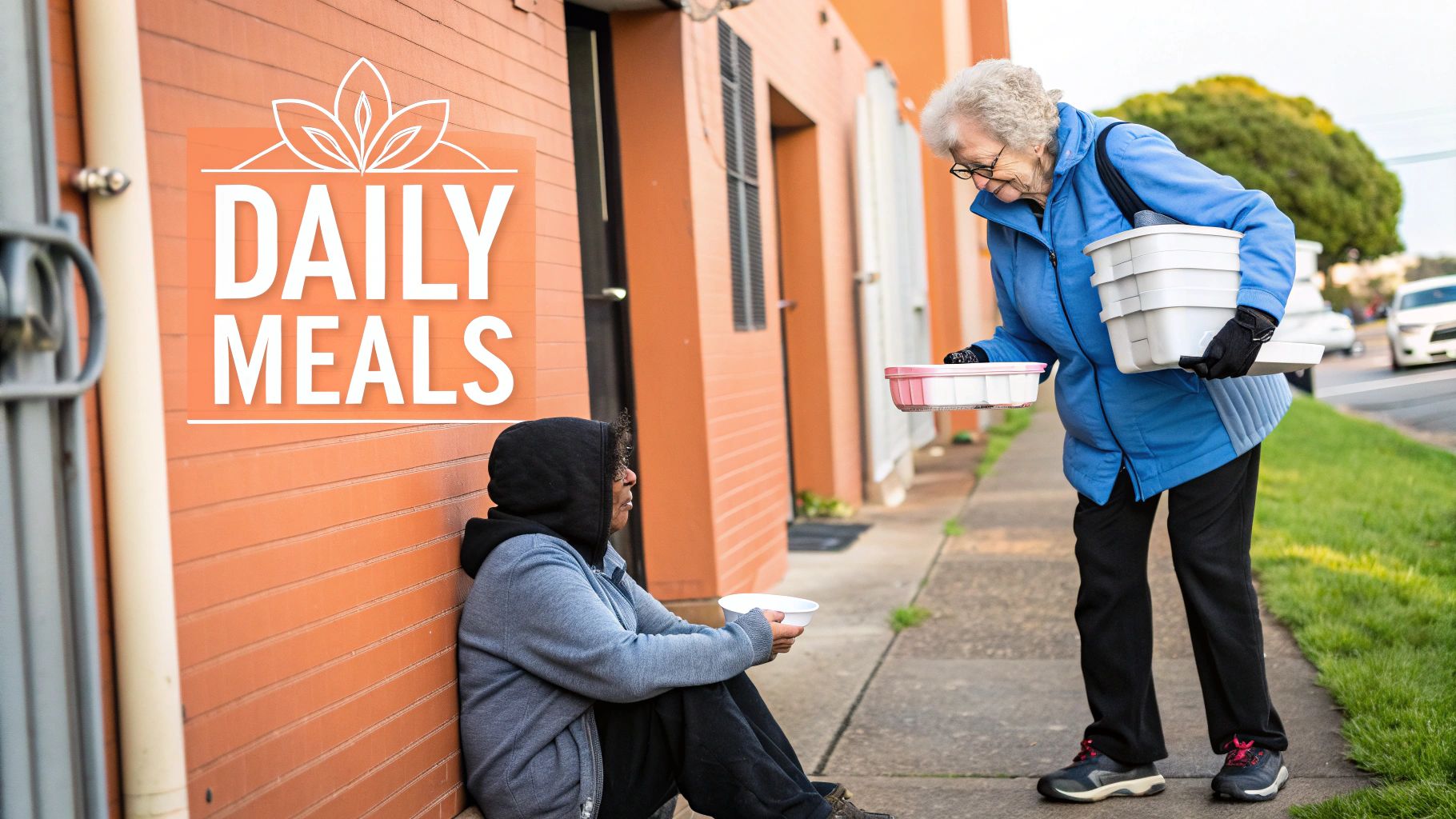
Living on a fixed income, Clara cooked and delivered over 100 meals every single week from her tiny apartment to homeless individuals. She did this quietly, without any fanfare, for years. Her selfless act, totaling over 26,000 meals, eventually inspired her entire city and led to the creation of new community kitchens.
The Take-Home Lesson for Kids
What’s the superpower Clara teaches our kids? Consistency. Kindness isn't always a single, flashy gesture. More often, it's about showing up, day after day. It proves that small, steady efforts, like drops of water, can eventually fill an entire bucket and nourish a community.
To a preschooler, one person making 100 meals sounds like a fairy tale. It beautifully simplifies a big idea like "community service" into a concrete action: using what you have (your kitchen, your time) to care for others.
How to Bring This Story to Life
Want to build that "kindness muscle" in your child? Here’s how you can channel Clara’s spirit into simple, repeatable actions they'll love:
- Start a "Kindness Jar": Every time your family does a small act of kindness—sharing a toy, helping a neighbor—put a marble or a colorful pom-pom in a jar. Watching the jar fill up gives your child a tangible, visual reward for how small, consistent acts create something big and beautiful.
- Commit to One Small, Weekly Task: Just like Clara had her weekly meal mission, pick one recurring family kindness project. Maybe it's making a card for an elderly neighbor every Sunday, leaving a thank-you note for the mail carrier every Friday, or putting out birdseed every morning.
- Practice Empathy in a Story World: How do kids learn to spot a need and choose to help? In Lunesia’s interactive stories, children meet characters who are hungry, lonely, or scared. They get to decide whether to share their virtual resources or offer help. This isn’t just a game; it’s emotional resilience training, empowering them to see themselves as helpers and reinforcing that their small, consistent choices bring comfort and joy to others.
3. The Invisible Disability Cards – Restaurant Staff's Secret Kindness
How do you show kindness to someone when you can't see their struggle? This is the powerful idea behind a growing movement to support individuals with invisible disabilities, and it’s one of the most thoughtful stories about kindness you can share. It’s about offering help so quietly, no one ever has to ask for it.
Imagine a busy restaurant. A customer is feeling overwhelmed by the noise, or another is struggling to read the menu. Instead of making them explain, a trained staff member might discreetly offer a table in a quieter corner. This "secret" kindness recognizes that not all challenges are visible. It’s a profound lesson in empathy and proactive care, creating a safe space for everyone.
The Take-Home Lesson for Kids
What’s the big idea for little ears? Kindness isn’t always loud; sometimes, the best kindness is a whisper. This story teaches children to look closer and think about what others might be feeling on the inside. It’s about understanding that everyone has different needs and that helping doesn't always require a grand announcement.
For a child, the idea of being a "secret helper" is pure magic. It frames empathy as a superpower: the ability to see what others might need and offer a small comfort that makes a world of difference.
How to Bring This Story to Life
You can nurture this superpower of observational kindness in your own family. Here’s how to translate the principle into preschooler-friendly actions:
- Become a "Kindness Detective": Turn empathy into a game. Encourage your child to notice the small things. Is a friend quiet at the playground today? "Maybe they just need a buddy to sit with, without a lot of questions." Is a younger sibling frustrated they can't reach a toy? "Let's be sneaky and move it closer for them!"
- Practice "Offering, Not Assuming": Teach your child the golden phrase: "Would you like some help with that?" This empowers them to offer assistance respectfully, giving the other person the choice to accept. It shifts the focus from "fixing" a problem to simply being a supportive friend.
- Role-Play Social Cues in Stories: How can a child learn to navigate complex social situations? Within a Lunesia story, a character might seem shy. Your child gets to decide how to approach them: do they give them space, offer a toy, or invite them to play? These choices build a deep, intuitive understanding of social cues and empathy, preparing them to be more attuned and kinder friends in the real world. For more ideas, you can find a wealth of kindness activities for preschoolers on Lunesia.app that reinforce these very lessons.
4. Books Behind Bars – The Prison Library Angel
Can a single book change a person’s future? What if it’s not just one book, but thousands, offered with the radical belief that everyone deserves a second chance? This is the heart of Sarah Chen's incredible mission, a librarian who dedicated her life to building libraries inside correctional facilities. Her work is one of the most profound stories about kindness, showing that empathy can break down walls, literally and figuratively.
Picture a place where hope is hard to find. Now, imagine Sarah Chen arriving, not with judgment, but with boxes full of stories. She believed that literacy could rewrite futures. Her initiative wasn't just about dropping off donations; she started reading programs and even helped inmates record themselves reading bedtime stories for their children. It’s a powerful act that says, "I see the good in you."
The Take-Home Lesson for Kids
So, what's the message for your child? Kindness means believing in people and helping them grow. Sarah didn't see "prisoners"; she saw learners, fathers, and future community members. This story teaches children that everyone deserves the tools to write a new chapter, no matter the mistakes they've made. It's about offering a hand up, not a handout.
For a young child, the concept of a "second chance" is deeply relatable. They understand the feeling of making a mistake and wanting to try again. This story frames kindness as the act of giving someone that opportunity.
How to Bring This Story to Life
Want to teach forgiveness and empathy? Here’s how to adapt the "prison library" principle for your child:
- Create a "Second Chance" Jar: When a sibling or friend makes a mistake (like knocking over a tower), talk about giving them a "second chance ticket" from the jar. This makes forgiveness a tangible, positive action rather than just a word.
- Share Your Skills: Just as Sarah shared books, ask your child, "What are you really good at?" Can they teach a younger sibling how to stack blocks? Can they show a friend how to draw their favorite animal? This frames sharing knowledge as a powerful form of kindness.
- Explore Redemption in Interactive Stories: What if your child could help a character make things right? Lunesia's adventures often feature characters who have made a mistake. Your child’s choices can guide that character toward a better path, teaching them that their compassion can help someone find their way. This isn't just a story; it's a powerful lesson in redemption and the transformative power of kindness.
5. The Grocery Guardian Angels – Secret Bill Payers
What if a real-life fairy godmother appeared when you needed help the most? For some families, that angel is a stranger in the grocery store checkout line. This growing trend involves anonymous individuals who quietly pay the grocery bills for others. These modern stories about kindness prove that the most profound generosity often comes without a name attached.
Imagine a parent carefully counting out change, their stress rising as the total grows. Suddenly, a stranger steps in and covers the cost, asking for nothing in return. This isn't charity; it's a quiet, powerful act of community support. It teaches a beautiful lesson: we are all in this together, and help can come from anywhere.
The Take-Home Lesson for Kids
What’s the secret lesson here? The magic of anonymous giving. Kindness isn't about getting a "thank you" or a gold star. It's about helping because your heart tells you it’s the right thing to do. This story shows children that the best gifts are the ones given freely, without any need for recognition.
For a child, the idea of being a "secret helper" is thrilling. It frames giving as a fun, secret mission to make someone's day, rather than a chore.
How to Bring This Story to Life
Ready to introduce the joy of anonymous giving? Here are some kid-friendly activities that focus on the act itself, not the applause:
- Become a "Kindness Ninja": Turn giving into an exciting game. Can you do something kind without being seen? Maybe it's leaving a pretty rock on a neighbor’s doorstep, taping a happy drawing on a community mailbox, or leaving a bottle of water for the delivery driver.
- Create an "Angel Fund": Start a family jar for loose change. When it’s full, decide together on a secret act of kindness, like buying a coffee for the person behind you in line or anonymously donating a new toy to a local charity.
- Practice Giving in a Digital World: In a world of make-believe, choosing to be kind is just as important. Lunesia’s interactive stories often present children with opportunities to help characters anonymously. A child might decide to leave a magic berry for a hungry fox without waking it, learning that the good feeling comes from the act of helping itself. This builds intrinsic motivation for kindness that lasts a lifetime.
6. The Lemonade Stand Millionaire – Alex Scott's Legacy
Could a four-year-old with a pitcher of lemonade actually change the world? The story of Alexandra "Alex" Scott is a resounding "yes!" It proves that one small act of hope can spark a global movement. When Alex was diagnosed with childhood cancer, she didn't focus on herself. She decided she wanted to help other kids like her. Her idea was simple: a lemonade stand. This is one of the most powerful stories about kindness because it shows how a child’s vision can create monumental change.
What started as a single front-yard stand has grown into a foundation that has raised over $200 million for pediatric cancer research. Did you know a donation is made to Alex’s Lemonade Stand Foundation every 10 minutes? Her story transforms a simple childhood activity into an unforgettable lesson on purpose, generosity, and the incredible power of a single, kind idea.
The Take-Home Lesson for Kids
What’s the game-changing message for your child? No one is ever too small to make a big difference. Alex's story beautifully illustrates that you don't need to be a grown-up to have a powerful idea or to help others in a huge way. Kindness isn't about age; it’s about heart.
For a preschooler, the idea of "helping doctors find cures" is incredibly empowering. It connects a familiar activity like making lemonade to a grand, heroic goal, showing them that their actions can have a real, positive impact on the world.
How to Bring This Story to Life
Want to ignite that can-do spirit in your child? Here’s how to adapt Alex’s inspiring story into everyday actions:
- Start a "Kindness Project": It doesn't have to be a lemonade stand. Help your child identify something they love. Do they love animals? Let's collect old towels for the local shelter. Do they love books? Let’s decorate bookmarks to leave in library books for other kids to find. The key is to connect their passion to a simple, achievable act of giving.
- Give with a Goal: Instead of just donating outgrown toys, explain the "why." Frame it as, "We are giving these toys so another child who doesn't have any can feel happy and have fun, just like you do." This forges a direct emotional link between their action and its positive outcome.
- Practice Problem-Solving in Interactive Stories: What if your child could run their own virtual kindness project? In Lunesia’s adventures, kids often encounter characters who need help. They might have to decide whether to share a rare resource or work together to achieve a common goal. This builds a foundation for proactive kindness, reinforcing the lessons from inspiring tales like Alex Scott's legacy in a fun, interactive way.
7. The Barber Shop Therapist – Mental Health Through Haircuts
Can a simple haircut change a life? What if the person holding the clippers was also trained to listen—truly listen—to unspoken struggles? That’s the revolutionary idea behind the Confess Project, started by barber Lorenzo Lewis. He transformed barbershops into safe havens where men could open up about mental health. This is one of the most innovative stories about kindness in action today.
Lorenzo knew the barber's chair is one of the few places many men feel comfortable enough to be vulnerable. He became a mental health advocate, training other barbers to spot signs of distress and offer compassionate support. His work shows that kindness isn't always about fixing problems; it’s about creating spaces where people feel seen and heard without judgment.

The Take-Home Lesson for Kids
What's the huge lesson for our little ones? Listening is one of the kindest things you can ever do. This story teaches that you don’t need all the answers to help someone. Simply offering a safe, non-judgmental ear can make someone feel less alone. It’s about being a "safe space" for others.
For a young child, the idea of a "talking haircut" makes the abstract concept of emotional support tangible and easy to grasp. It shows that helping can happen anywhere, during everyday activities.
How to Bring This Story to Life
Ready to cultivate deep listening skills in your child? Here’s how to adapt this powerful concept for your family:
- Create "Listening Chairs": Designate two chairs in your home as the "listening chairs." When someone sits there, the other person’s only job is to listen without interrupting. Ask your child, "Tell me everything about the park today," and let them share their whole story, validating their feelings along the way.
- Practice "Heart-to-Heart" Time: Just as the barbershop provides a consistent space, schedule a brief, daily "heart-to-heart" moment, maybe during bedtime cuddles. This routine teaches your child that there is always a safe time and place to share their worries, fears, or joys.
- Model Empathy in Interactive Play: Where can children safely practice these big emotions? Interactive stories on the Lunesia app often present characters who are sad, scared, or frustrated—just like kids sometimes feel. By choosing how to respond, your child practices active listening and compassionate problem-solving, a key way that storytelling builds empathy in children. This reinforces that their kind words and listening ears have a real impact, building the foundation for deep emotional intelligence.
Kindness Stories Comparison Table
| Initiative | Implementation Complexity 🔄 | Resource Requirements ⚡ | Expected Outcomes 📊 | Ideal Use Cases 💡 | Key Advantages ⭐ |
|---|---|---|---|---|---|
| Pizza to the Polls – Free Pizza for Voters | Moderate (coordination, volunteers) | Crowdfunded donations, local pizza vendors | Increased voter turnout and morale | Long voting lines, civic engagement events | Encourages voting, community building |
| The Sandwich Generation Angel – Clara's Daily Meals | Low to Moderate (individual effort) | Personal resources, volunteer time | Consistent nutrition, reduced isolation | Feeding homeless individuals, small-scale programs | Personal connection, inspires replication |
| The Invisible Disability Cards – Restaurant Staff's Secret Kindness | High (staff training and flexibility) | Staff time, training programs | More inclusive and dignified service | Hospitality settings, invisible disability support | Preserves dignity, raises awareness |
| Books Behind Bars – The Prison Library Angel | High (institutional partnerships) | Funding for books, education collaborations | Reduced recidivism, improved literacy | Correctional facilities education and rehabilitation | Reduces recidivism, family engagement |
| The Grocery Guardian Angels – Secret Bill Payers | Low (anonymous individual actions) | Cash or gift cards, coordination with stores | Immediate food security relief | Grocery assistance to struggling families | Preserves dignity, promotes kindness ripple |
| The Lemonade Stand Millionaire – Alex Scott's Legacy | Moderate (community organizing, media) | Community support, fundraising infrastructure | Large-scale pediatric cancer research funding | Childhood cancer fundraising, awareness campaigns | Empowers youth, sustains legacy funding |
| The Barber Shop Therapist – Mental Health Through Haircuts | High (training, cultural adaptation) | Professional training, community spaces | Reduced mental health stigma, emotional support | Male mental health outreach in barbershops | Accessible therapy, stigma reduction |
Your Story Begins Now: Turning Inspiration into Everyday Magic
From a shared pizza to a quiet act in a grocery line, what do all these stories have in common? They prove that kindness isn't a rare, heroic act. It’s a series of small, intentional choices that weave a stronger, more compassionate community. These aren't just feel-good tales; they are real-world blueprints for how to put empathy into action.
As a parent, you’re not just raising a child; you're shaping a future adult who will either add to the world's kindness or its indifference. But how do you teach something as abstract as empathy? It’s a muscle that needs consistent, meaningful exercise. How can you give your child a safe space to practice making kind choices, to see the direct impact of their compassion, and to build the emotional resilience to handle life's challenges?
From Passive Listening to Active Doing
This is where the paradigm shifts. Traditional bedtime stories are wonderful, but what if your child wasn't just a spectator? What if they had to decide whether to share their virtual lunch with a grumpy bear or help a lost firefly find its way home? This leap from passive listening to active participation is the secret to building deep, instinctual empathy.
This is what makes stories about kindness truly transformative. Kids learn by doing. When a story asks for their input, it becomes their story. They feel the weight of their decisions and witness the positive outcomes of their compassionate choices, reinforcing these values in a way a lecture never could.
Actionable Steps to Cultivate Kindness
Ready to move from inspiration to implementation? Here are three concrete ways to turn these lessons into daily habits:
- Start a "Kindness Jar": Keep a jar and colorful paper slips handy. Whenever you or your child spots an act of kindness—real or in a story—write it down and add it to the jar. Once a week, read them aloud. This small ritual makes kindness a visible and celebrated part of your family culture.
- Role-Play Story Scenarios: After reading a story or playing through an interactive one, act out a similar scenario. If a character shared their snack, ask your child, "What if your friend forgot their snack tomorrow? What could we do?" This bridges the gap between fictional characters and real-life friends.
- Master the Narrative: The way you talk about stories matters. To ensure these narratives inspire real action, learn the art of storytelling for kids with moral lessons that emphasize kindness. This will equip you to guide conversations that build true understanding.
Raising a kind human is the greatest adventure of all. The stories we've shared are the sparks, but you and your child carry the flame. By making kindness an active, celebrated, and interactive part of your daily life, you're not just reading stories; you are writing the first chapter of your child's own beautiful, compassionate life.
Ready to transform guilt-ridden screen time into a powerful empathy-building experience? Lunesia offers a library of interactive adventures where your child makes choices that teach kindness, courage, and resilience—all in a safe, ad-free environment. While they’re engaged in a meaningful journey, you get that precious, well-deserved break. Download Lunesia today and give your child a playground for growing a kind heart.
